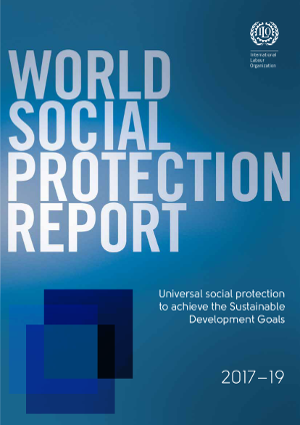Only one third of children covered by social protection: ILO, UNICEF
A new report by UNICEF and the ILO highlights the critical need to extend social protection to all children.
Social protection is critical in helping children escape poverty and its devastating effects, yet, the vast majority of children have no effective social protection coverage, UNICEF and the ILO said in a joint report.
Evidence shows clearly that cash transfers play a vital role in breaking the vicious cycle of poverty and vulnerability. Yet, globally only 35 per cent of children on average are covered by social protection which reaches 87 per cent in Europe and Central Asia, 66 per cent in the Americas, 28 per cent in Asia and 16 per cent in Africa. At the same time, one in five children lives in extreme poverty (less than US$ 1.90 a day), and almost half of the world’s children live in ‘moderate’ poverty (under $3.10 a day). Almost everywhere, poverty disproportionately affects children, as they are twice as likely as adults to live in extreme poverty.
“Child poverty can be reduced overnight with adequate social protection.”
Isabel Ortiz, Director of Social Protection, ILO
The report calls for the rapid expansion of child and family benefits, with the aim of achieving universal social protection for children, as well as the Sustainable Development Goals (SDGs). Such benefits are a key element of policies to improve access to nutrition, health and education, as well as reducing child labour and child poverty and vulnerability. The report notes that universal social protection for children is not a privilege of wealthy countries. A number of developing countries have made or achieved (or nearly achieved) universal coverage, such as Argentina, Brazil, Chile, Mongolia and South Africa.
But in many other countries, social protection programmes for children struggle with limited coverage, inadequate benefit levels, fragmentation and weak institutionalization. Some governments undergoing fiscal consolidation are even cutting allowances, instead of extending benefits as countries had agreed in the SDGs.
“Child poverty can be reduced overnight with adequate social protection,” said Isabel Ortiz, Director of Social Protection, ILO. “To improve the lives of all children is an issue of priorities and political will: even the poorest countries have fiscal space to extend social protection floors.” “Poverty hits children the hardest, since its consequences can last a lifetime. The poor nutrition and lost years of education that often result are tragic both for the individual and for his or her community and society,” said Alexandra Yuster, UNICEF Associate Director and Chief of Social Policy. “Countries need to put children first and reach every child with social protection to end poverty for good.”
Francesca Bastagli, Head of the Social Protection and Social Policy programme at ODI, said: “We know that social protection policies and systems can make a big difference and are one of the main instruments available to governments in tackling poverty and inequality and meeting the SDGs.”
“Countries need to put children first and reach every child with social protection to end poverty for good.”
Alexandra Yuster, UNICEF Associate Director and Chief of Social Policy
“It is vital that governments and international organisations recognize the clear evidence emerging in this area. By bringing together government leaders, researchers and practitioners from across the globe, the International Conference on Universal Child Grants is an ideal opportunity for them to engage with this important policy instrument.”
The issue is discussed at the International Conference on Child Grants , convened by UNICEF , the ILO and the Overseas Development Institute (ODI). The conference takes place at the ILO headquarters in Geneva on 6-8 February 2019.
Source: ILO




















